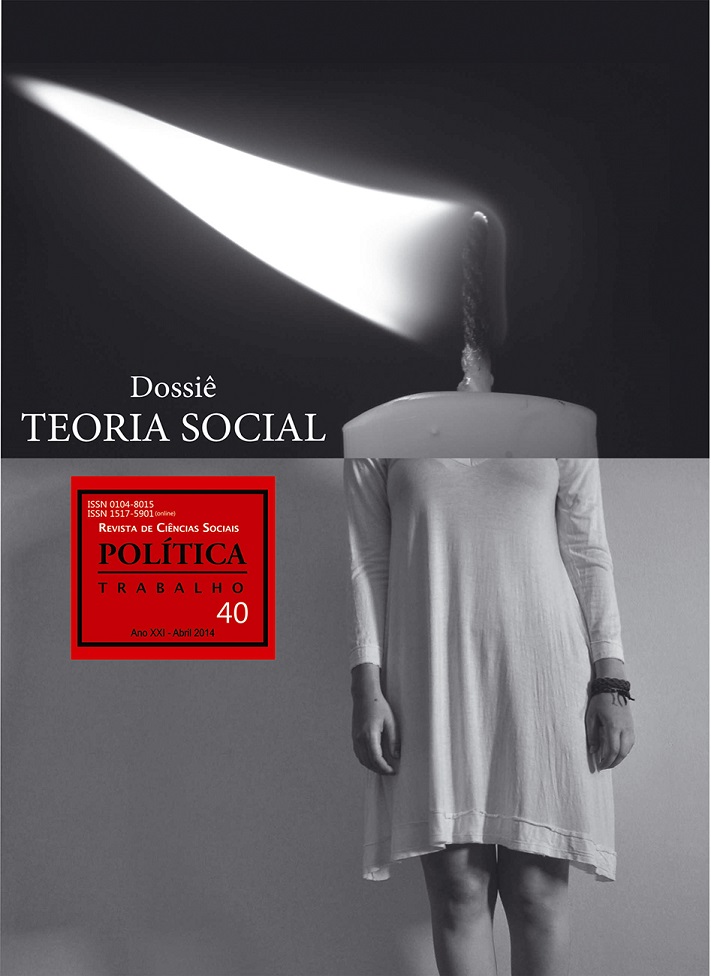Ordem social e (in)segurança ontológica: esboços de existencialismo sociológico em Peter Berger, Anthony Giddens e Pierre Bourdieu
Resumo
As abordagens praxiológicas na teoria social convergem na tese de que a ordem societária não constitui um dado, mas um resultado contingente de condutas cognitivamente habilidosas levadas a cabo em uma multiplicidade de cenários. O acento sobre a contingência histórica da ordem social acarreta, no entanto, investigar por que os agentes investem, afinal, na inteligibilidade, na organização e na previsibilidade dos seus contextos societários. Cada um à sua maneira, Peter Berger, Anthony Giddens e Pierre Bourdieu desaguaram na visão de que esse investimento responde a um anseio por segurança ontológica (latu sensu), um anelo vital por uma experiência do mundo e da própria existência como dotados de ordem, justificação e sentido. Com base nesses autores, o presente artigo esquadrinha os mecanismos sociopsicológicos de produção da experiência da segurança ontológica, bem como as situações-limite ou “ameaças marginais” (Berger) que perturbam essa experiência, tais como o sonho, a psicose e a morte. O trabalho recupera, assim, dimensões relativamente pouco discutidas das obras destes discutidíssimos sociólogos, explorando a conexão entre seus retratos praxiológicos do mundo social, de um lado, e suas caracterizações “existenciais” do ser humano como um animal sedento de amparo e significação, de outro. Palavras-chave: ordem social, segurança ontológica, Peter Berger, Anthony Giddens, Pierre Bourdieu. Abstract The praxeological approaches in social theory converge on the thesis that social order is not a given, but a contingent result of cognitively skilled conducts undertaken in a multiplicity of scenarios. The emphasis on the historical contingency of social order involves, however, investigating why agents invest, after all, in the intelligibility, organization and predictability of their social contexts. Each in his own way, Peter Berger, Anthony Giddens and Pierre Bourdieu put forth the view that this investment stems from a longing for ontological security (latu sensu), a vital yearning for an experience of the world, and of one’s own existence, as endowed with order, justification and meaning. Based on these authors, the present article scans the social-sychological mechanisms of production of the experience of ontological security, as well as the limit-situations or ‘marginal threats’ (Berger) which disturb this experience, such as dreams, psychosis and death. The paper recovers, thus, relatively ill-discussed dimensions of the works of these highly discussed sociologists, exploring the connection between their praxeological accounts of the social world, on the one hand, and their ‘existential’ characterizations of the human being as an animal thirsty for support and significance, on the other. Keywords: social order, ontological security, Peter Berger, Anthony Giddens, Pierre Bourdieu.Downloads
Não há dados estatísticos.
Downloads
Publicado
11.08.2014
Como Citar
Peters, G. (2014). Ordem social e (in)segurança ontológica: esboços de existencialismo sociológico em Peter Berger, Anthony Giddens e Pierre Bourdieu. Política & Trabalho: Revista De Ciências Sociais, 1(40). Recuperado de https://periodicos.ufpb.br/index.php/politicaetrabalho/article/view/20145
Edição
Seção
Nº 40 - DOSSIÊ TEORIA SOCIAL






